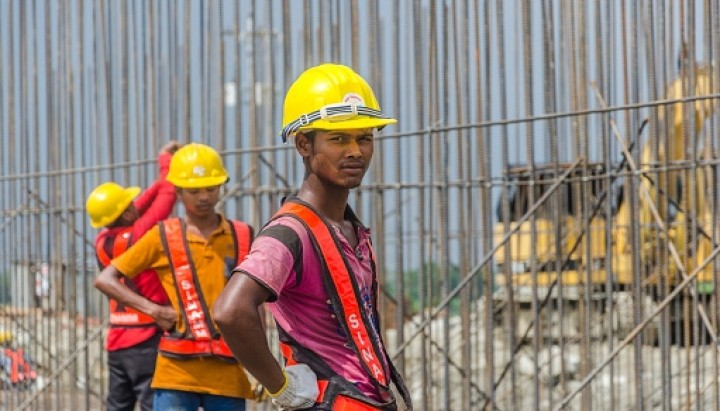Albania’s businesses turn to foreign workers as immigration ticks up

Albania—long a country of emigration—is beginning to see the reverse flow. Nearly 22,000 foreign nationals held Albanian residence permits in 2024, up 2.2% from 2023, as companies fill labor gaps with Indian workers in construction and Filipinos in services, according to INSTAT data.
Why is this important: A steady inflow of foreign workers is new for Albania and is reshaping parts of the labor market. Employers facing shortages—especially in construction and hospitality—are recruiting abroad, raising questions about skills, pay, housing, and integration, but also helping sustain growth in sectors struggling to hire.
The numbers: Men make up 62% of foreign residents and women 38%. The largest age cohort is 30–39, about one quarter of the total. Employment is the top reason for stay—around 11,000 permits—followed by family reunification and study.
Kosovars remain the largest group (4,592 permits), followed by Italians (3,763) and Turks. In 2024, India and the Philippines entered the top five countries of origin, reflecting active recruitment pipelines. Year over year, the share of residents from European countries fell by over 5%, while arrivals from Africa rose 23% and from Asia 20%.
Where they work: Construction firms are hiring primarily from India, while hotels, restaurants, and household service providers are turning to the Philippines—and increasingly Vietnam and Thailand—for staff.
Background: For decades Albania exported workers and immigration on this scale is a new phenomenon. The trend mirrors tight domestic labor supply, rising wages in key sectors, and formalization. It also puts a premium on clear rules for recruitment, recognition of qualifications, language training, and enforcement against abuse.
With tourism, construction, and urban services expanding, businesses are likely to keep looking abroad unless domestic training and participation rise.


